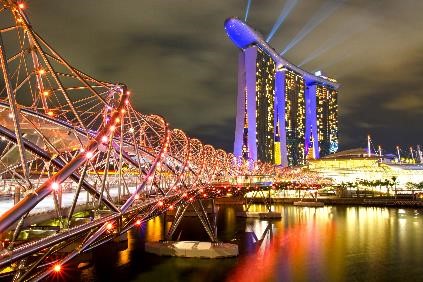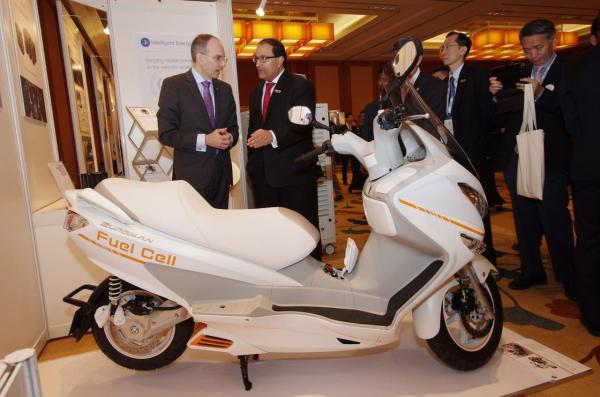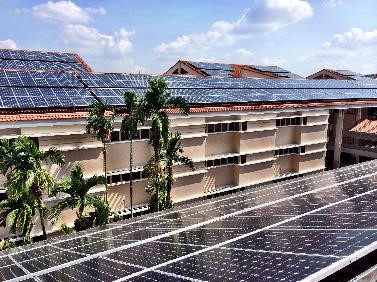News
Singapore government places a priority in ensuring a sustainable future for the future generation. In order to do so, Singapore is willing to embark on new technologies, solutions & business models in the cleantech sector that would benefit its people.

Singapore’s sustainable energy landscape
Singapore is a hub for solar in the Asia Pacific region, where a wide range of companies with their regional headquarter offices, research & development, system integration, project development and manufacturing activities established here . Singapore has also implemented a number of clean energy testbeds and initiatives, aimed at looking for ways to help households and businesses save money.
The government is taking the lead through the SolarNova programme which aims to install 350MW of solar on government building, and innovative testbeds such as the Floating Solar PV, where the Public Utilities Board (PUB) aims for energy independence (50% reduction) in water facilities in 10 years. There is also Southeast Asia’s first hybrid micro-grid which will test integration of solar, wind, tidal, diesel, storage and power-to-gas technologies at Semakau Landfill, and the EcoCampus Initiative at Nanyang Technological University.
Singapore is a hub for solar in the Asia Pacific region, where a wide range of regional headquarter offices, research & development, system integration, project development and manufacturing activities companies have established themselves.
The Role of the Sustainable Energy Association of Singapore
SEAS works very closely with governments both in Singapore and the region. Strong policies lead to emission reduction as well opens up markets for companies with energy efficiency and renewable energy technologies and services. With insights from the industry, we know that in order for market forces to work effectively in the industry and for it to grow, strong regulatory frameworks are needed. Thus our work with the industry and government helps to ensure that all groups communicate with each other and understand each other’s needs.
The Next 50 years for Sustainable Energy in Singapore
Singapore is working towards becoming a smart city, embarking on intensive research and development in areas that are new for the country. Examples of these technologies are: electric mobility, energy storage, renewable energy hybrid solutions, integrating renewable energy into the grid and green data centres.
Singapore will also be working on increasing the contribution of renewable energy in our energy mix. Solar would continue to play a large role and its capacity would grow. Business models such as solar leasing, offsite PPA and green electricity retailing would grow further and would encourage more businesses and consumers to take up renewable energy solutions.

 Photo (L): Sunseap
Photo (L): Sunseap
SEAS’ role in the next 50 years
Minister S Iswaran, Minister for Trade and Industry (Trade), said in his opening speech at the Asia Clean Energy Summit (ACES) that “To address the needs of a more sophisticated energy industry, we are pioneering new innovation models through public-private partnerships”. Thus in order to support industry growth, we also need to establish Singapore as a living laboratory for these new technologies, so that test bed and real-life applications can take place here, before being implemented regionally.
“To address the needs of a more sophisticated energy industry, we are pioneering new innovation models through public-private partnerships, and living lab platforms” – Minister S Iswaran
In addition to research and development, we need strong regulatory frameworks that encourage the development of new technologies. With this, project financing will also come in as investors gain confidence in this new technology. They will be able to understand these new technologies better and calculate the risks involved. A skilled workforce is also needed, and the workforce will need to be trained with the relevant skills and gain necessary experience. As this foundation is built, the new smart technology ecosystem can grow.
SEAS can raise awareness about these new technologies, provide information about how these technologies work, and promote business opportunities such as organise networking sessions and business matching.
SEAS can raise awareness about these new technologies, provide information about how these technologies work, and promote business opportunities such as organise networking sessions and business matching. SEAS also has a training centre and as with technologies like solar and bioenergy, we will do a study on the topics that are needed in the specific smart technology and engage the best experts in these fields to conduct training courses.

SEAS will continue to forge connections and help our members and the industry establish strong networks. In trying to increase the adoption of clean energy and energy efficiency, we understand that collaboration between government, industry, and academia is important, thus this partnership is needed in order to develop upcoming trends in smart technology.
SEAS aspires to be the go to sustainable energy association for our members and industry at large and leading the charge in promoting knowledge, facilitating networks and projects and acting as a bridge between the government and private sector. We hope that there will be a mind shift for companies post COP 21 and there will be a growing upward trend in adopting clean energy.
Save
Save
Save
Save